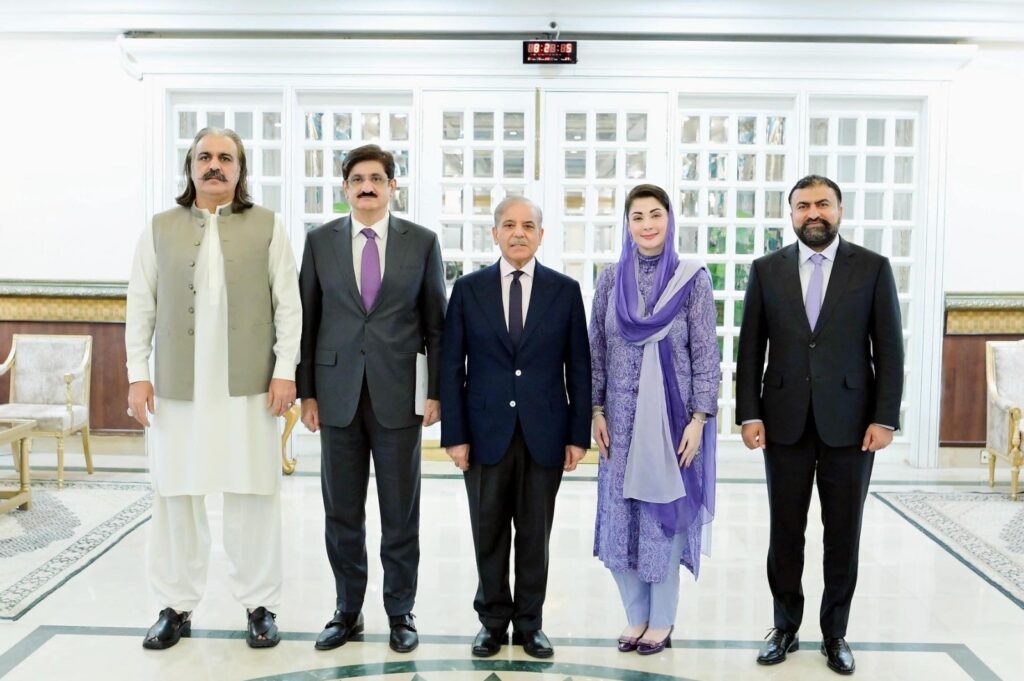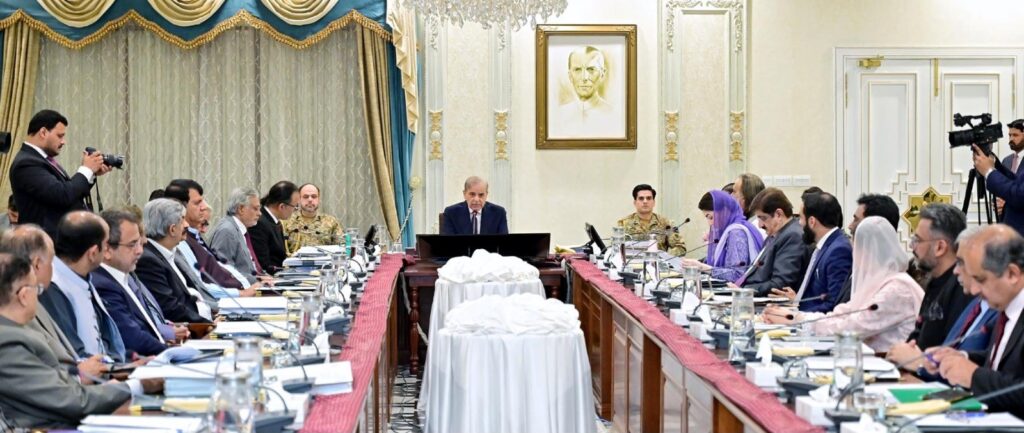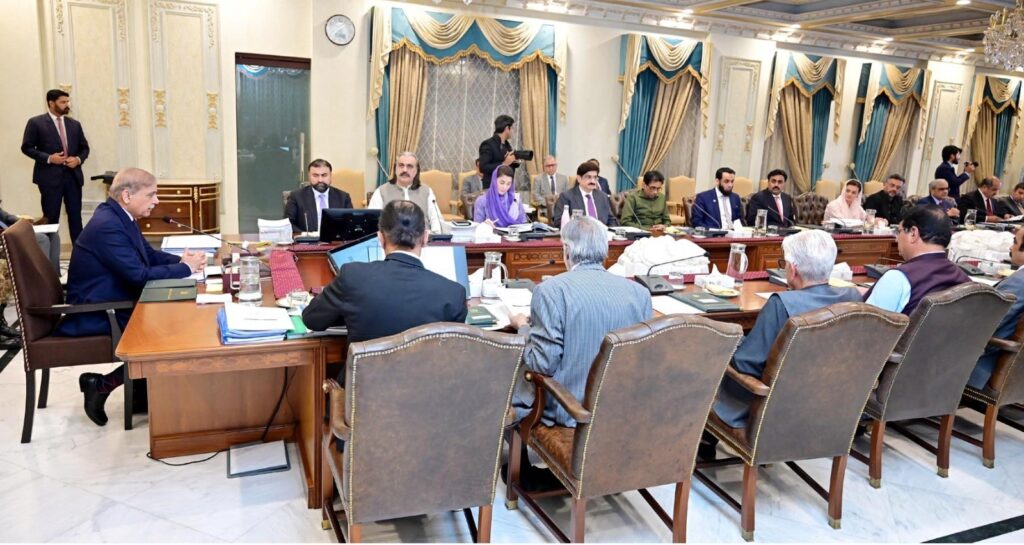The rejection follows widespread protests
and growing tensions over water
distribution among provinces
Associated Press of Pakistan

Islamabad: The Council of Common Interests (CCI) on Monday overturned the federal government’s proposal to construct new canals from the Indus River, rejecting the earlier decision made by the Executive Committee of the National Economic Council (ECNEC) in February. The rejection follows widespread protests and growing tensions over water distribution among provinces.
In a statement released by the Prime Minister’s Office after the meeting, it was emphasized, “No new canals will be constructed without mutual understanding and consensus among all provinces.” The meeting, chaired by Prime Minister Shehbaz Sharif, was attended by the chief ministers of all four provinces, Deputy Prime Minister Ishaq Dar, Defence Minister Khawaja Asif, Federal Minister Ameer Muqam, and other senior officials.

Federal-Provincial Committee to Address Water Management
The CCI decided to withdraw the provisional approval for the canal construction project and announced the formation of a new federal-provincial committee. This committee will work on long-term agricultural and water management solutions, adhering to the principles of the 1991 Water Accord and the 2018 Water Policy. The government remains committed to resolving water-related disputes amicably, ensuring that the concerns of all provinces are addressed.
K-P and Sindh Governments Respond Positively
Khyber-Pakhtunkhwa (K-P) Chief Minister Ali Amin Gandapur expressed his approval of the decision, stating, “It has been decided to resolve issues through mutual understanding.” He also confirmed that some of K-P’s demands, including the recognition of tobacco as a formal crop and the review of the National Finance Commission (NFC) Award, will be added to the next CCI agenda.

Ongoing Protests Disrupt Sindh-Punjab Trade
The decision comes amid escalating protests in Sindh over the proposed canal project, which aimed to construct six canals at an estimated cost of Rs 211.4 billion. These protests have been led by Sindh’s provincial government and nationalist groups, who warned that the canals would deprive Sindh of its fair share of water.
For over 10 days, sit-ins and blockades have disrupted key highways, causing shortages in petrol and food supplies. Transporters have reported increasing vehicle damage as protests continue without resolution.
Despite assurances from Prime Minister Shehbaz Sharif that no new canals would proceed without consensus, the protests have intensified, exposing deep-rooted distrust and regional tensions regarding water distribution.
Government Pushes for National Unity Amidst Regional Tensions
Amid the ongoing protests, the CCI also strongly condemned India’s “unilateral, illegal, and irresponsible actions” in the wake of the Pahalgam attack. The meeting underscored Pakistan’s commitment to national unity and defense, expressing solidarity with the federal government in the face of potential Indian aggression.
The Sindh government, which had requested an expedited meeting due to the ongoing protests, expressed hope that the decision would bring an end to the crisis. However, if protests continue, further actions will be considered to resolve the situation.
Transport and Business Disruptions Continue in Sindh
The All Pakistan Goods Transport Alliance (APGTA) has announced a protest outside the Sindh CM House in Karachi due to the continued blockade of roads. Transporters reported significant losses, as thousands of trucks and oil tankers remain stuck, impacting the import, export, and local industries.
Manufacturers are facing raw material shortages, while port authorities anticipate severe congestion due to the prolonged disruptions.
Political Reactions and Legal Protests
The Sindh Assembly unanimously passed a resolution against the canal project in March, reflecting strong opposition from political parties, including the PPP, and local residents. Legal professionals have been staging sit-ins in various parts of Sindh since mid-April, further escalating tensions.
The government has called for reopening the roads to ensure smooth transport and mitigate the economic damage caused by the ongoing protests.
Conclusion
As the CCI moves forward with the decision to halt the new canal construction, the federal and provincial governments will need to engage in further dialogue to ensure equitable water distribution and address the concerns of all stakeholders. The situation remains fluid as the country faces growing political and economic challenges.























